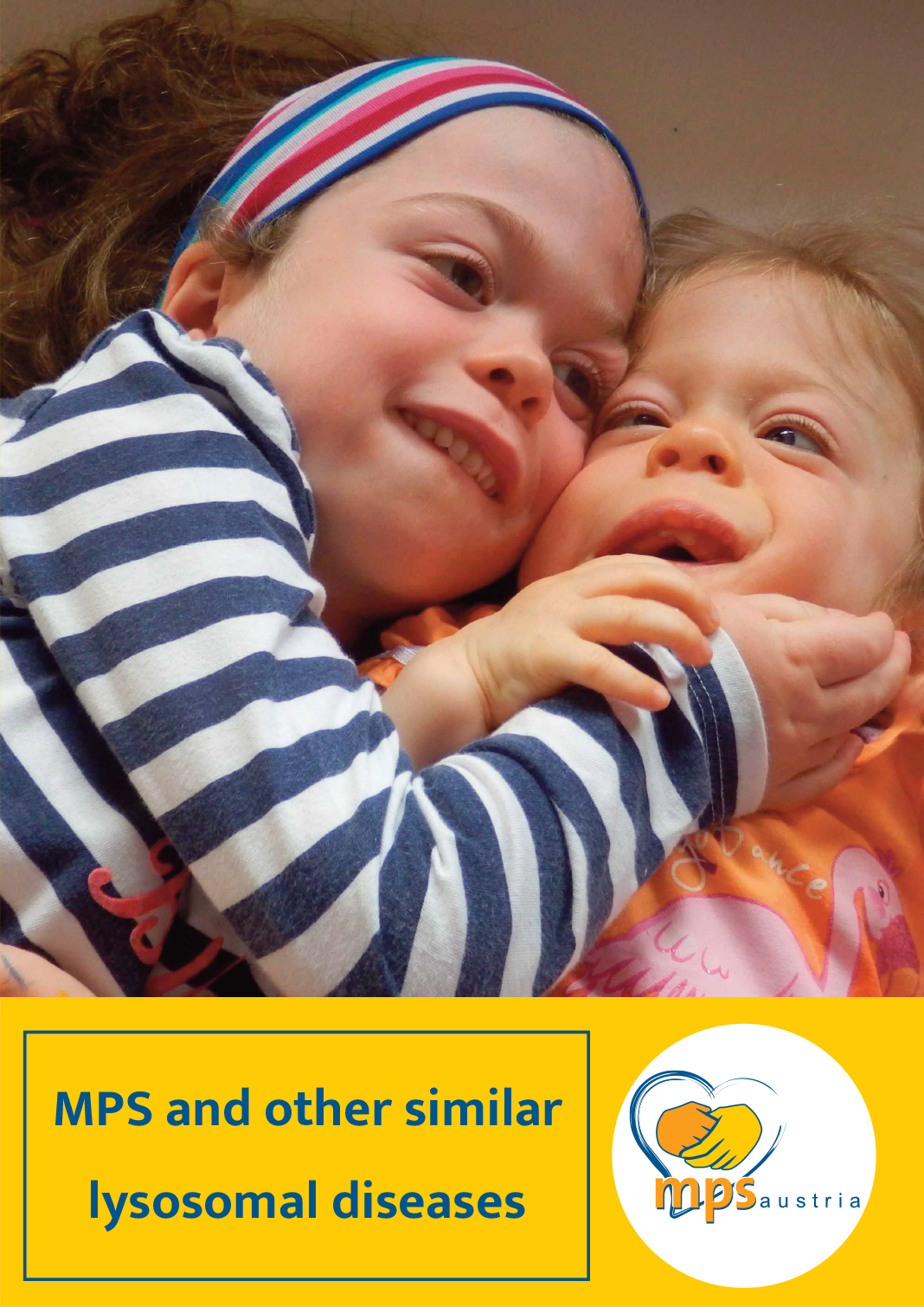MPS Austria wants to make everyday life easier for children with Mucopolysaccharidosis and other similar Lysosomal diseases, and their families, by supporting them with advice and action, both emotionally and financially.
Mucopolysaccharidosis (MPS) and other similar Lysosomal diseases are a group of rare genetic diseases caused by enzyme deficiencies, and appear early on in childhood. Early signs of the disease can include infections, hernias, and in MPS specifically, physical discrepancies such as an enlarged tongue.
From understanding signs and symptoms, early diagnosis strategies, heart, and sleep disturbances, to exploring orphan drug and gene therapies – this ebook aims to help patients and families understand more about these diseases and living with them.
MPS – a disease with many faces
MPS disease can be difficult to diagnose as there are a myriad of different symptoms, and no two patients will present with the same signs of the disease. These patients can be split into three general groups: those impacted with organ problems, hearing loss, and skeletal problems; those with skeletal, joint, and ligament problems; and, those characterised by impaired function of cell to cell communication. Some of these patients are afflicted with neurological development problems, but not all.
Lysosomal diseases are a subset of MPS disease, including Hurler disease, Hunter disease, and Maroteaux–Lamy syndrome.
Therapies for MPS and Lysosomal diseases
Patients with MPS and other Lysosomal diseases can undergo a number of therapies to support their day to day lives. Many can experience a better quality of life with supportive therapies such as hearing aids, corneal transplantations, and operations for the decompression and stabilisation of the craniocervical junction – which prevents tetraplegia and sleep apnea.
Enzyme-replacement therapy has demonstrated successful results in clinical trials and has now been approved – ushering in a new era in therapy for MPS patients, however, limitations with this therapy remain.
Gene therapy is also an option for some MPS patients. This type of therapy carries much lower risk than haematopoietic stem cell therapy, or enzyme replacement therapy, and has been considerably improved thanks to recent technological progress.
What can you do to help?
MPS Austria hopes that one day there will be a treatment and cure for each one of the MPS forms that patients live with. The foundation collects information on the state of MPS and Lysosomal disease research worldwide to try and help advance research and support the development of therapies.
Discover MPS Austria’s ebook to find out more about MPS and other Lysosomal diseases, and how you can help.

